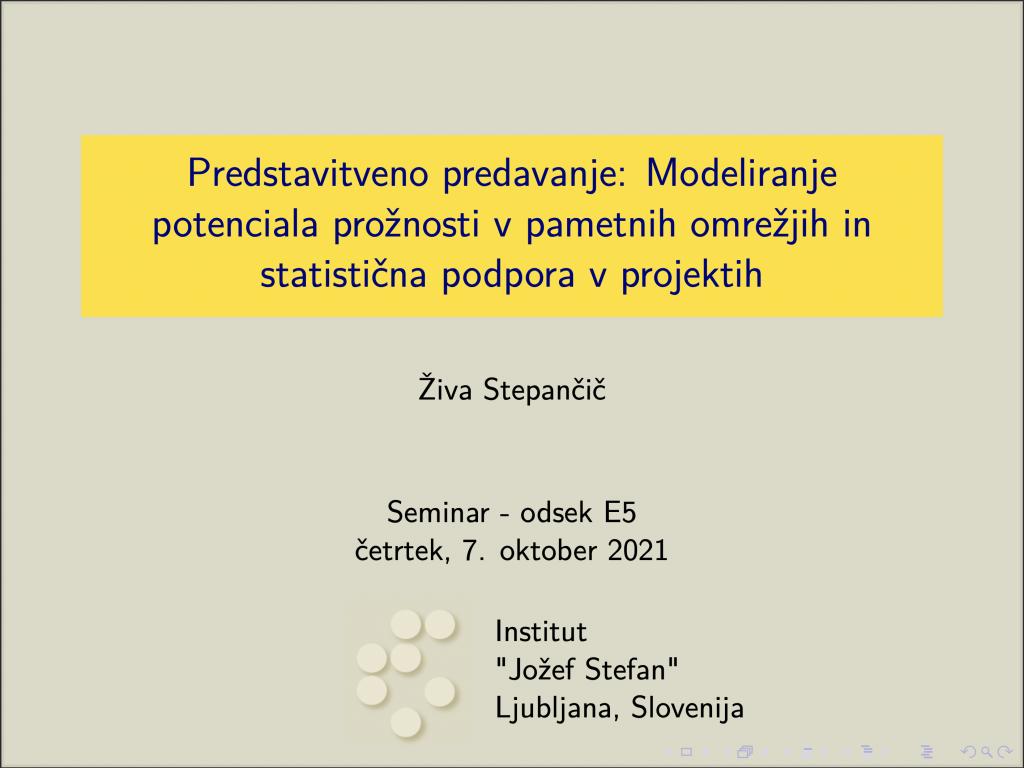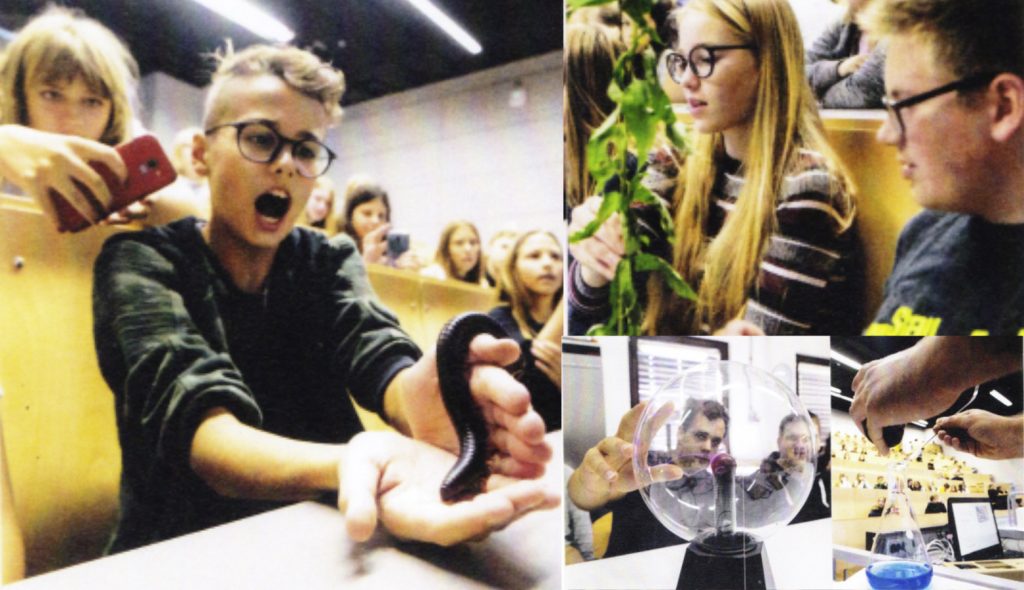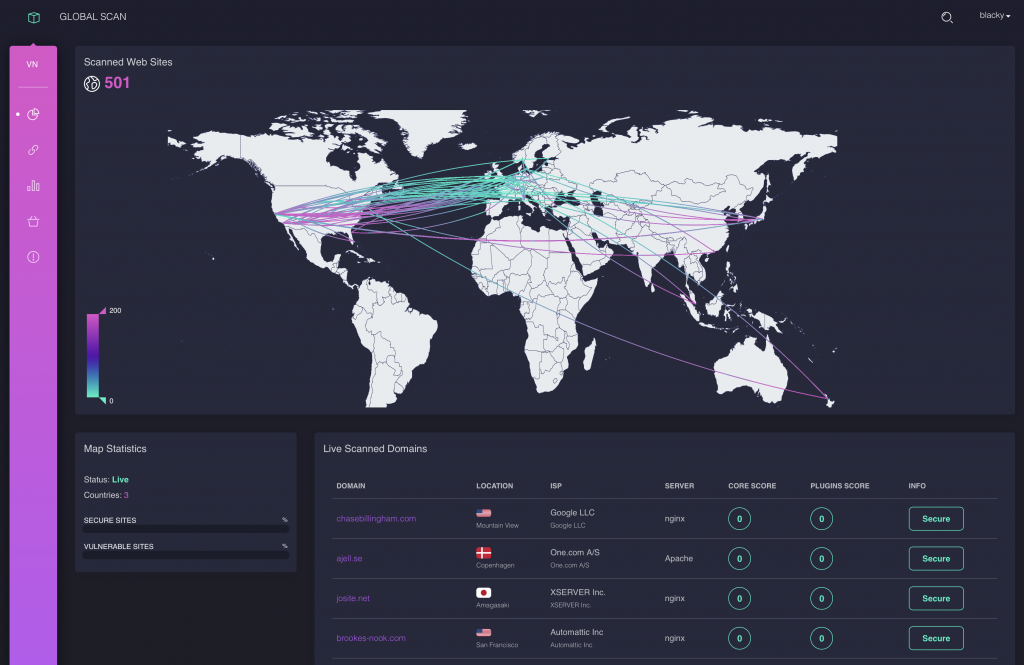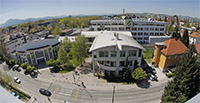Department seminar: Presentation seminar of dr. Živa Stepančič
Dr. Živa Stepančič from the Laboratory of Open Systems and Networks had a department seminar titled: “Presentation seminar: Modelling of flexibility potential in smart grids and statistical support in projects” on Thursday, 7th October 2021. Presentation of her work included the presentation of the research results as well as the description of her currents tasks on various european and industrial projects under way at the Laboratory of Open Systems and Networks. The seminar was carried out virtually.






